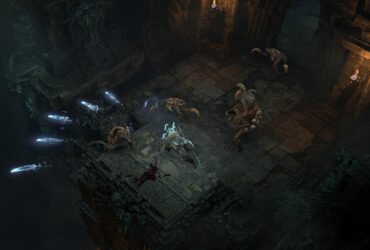PlayStation co-CEO Hermen Hulst has weighed in on on the role of artificial intelligence in game development, saying that while the technology has the capacity to “revolutionise” the industry, it won’t replace the “human touch”.
Speaking with the BBC to mark PlayStation’s 30th anniversary, Hulst acknowledged that while AI technology is changing game development, human developers will always have a role to play. “I suspect there will be a dual demand in gaming,” he suggested. “One for AI-driven innovative experiences and another for handcrafted, thoughtful content… Striking the right balance between leveraging AI and preserving the human touch will be crucial.”
This isn’t the first time PlayStation execs have addressed the issue of AI. PlayStation Studios’ head of product Asad Qizilbash previously insisted the technology “will create more personalised experiences and meaningful stories for consumers”, adding, “This is important for the younger Gen Z and Gen Alpha audiences, who are the first generations that grew up digitally and are looking for personalisation across everything, as well as looking for experiences to have more meaning.”
To see this content please enable targeting cookies. Manage cookie settings
AI chatter has, of course, become increasingly pronounced in recent years as advancements make headlines and executives – from Microsoft to Embracer Group – talk up the technology to excite investors. Earlier this year, for instance, EA CEO Andrew Wilson told investors AI was at “the very core of our business”, adding the company had over a hundred “active novel AI projects” to assist with game development.
Nintendo president Shuntaro Furukawa, too, recently acknowledged “game development and AI technology have always had a close relationship” and that generative AI could be “used in creative ways”. However, he insisted the company’s “decades of know-how” was more valuable than AI when it came to “creating the best gaming experiences for our players”.
Eearlier this, a report by game engine maker unity claimed 62 percent of studios have used AI at some point during game development, with 71 percent saying AI had improved their delivery and operations, reducing time to launch. But the technology remains highly controversial, from the sources it utilising to the things its used for. In March, for instance, several Baldur’s Gate 3 actors shared their thoughts on the darker side of success fuelled by AI voice cloning.
And if you’re curious to learn more, Eurogamer’s Ed Nightingale took a closer look at AI’s current and future game development role back in May.
function appendFacebookPixels() { if (window.facebookPixelsDone) return; !function(f,b,e,v,n,t,s) {if(f.fbq)return;n=f.fbq=function(){n.callMethod? n.callMethod.apply(n,arguments):n.queue.push(arguments)}; if(!f._fbq)f._fbq=n;n.push=n;n.loaded=!0;n.version='2.0'; n.queue=[];t=b.createElement(e);t.async=!0; t.src=v;s=b.getElementsByTagName(e)[0]; s.parentNode.insertBefore(t,s)}(window, document,'script', 'https://connect.facebook.net/en_US/fbevents.js');
fbq('init', '560747571485047');
fbq('track', 'PageView'); window.facebookPixelsDone = true;
window.dispatchEvent(new Event('BrockmanFacebookPixelsEnabled')); }
window.addEventListener('BrockmanTargetingCookiesAllowed', appendFacebookPixels);
Source link












Leave a Reply